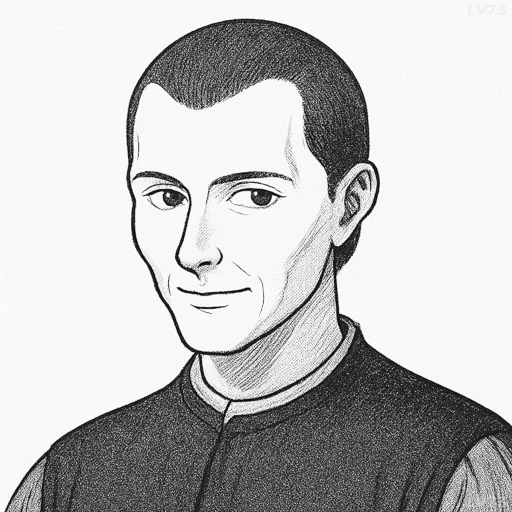“The wise man does at once what the fool does finally.”

- May 3, 1469 – June 21, 1527
- Born in the Republic of Florence (Italy)
- Political thinker and diplomat
table of contents
Quote
“The wise man does at once what the fool does finally.”
Explanation
In this quote, Niccolò Machiavelli draws a distinction between the wisdom of a quick and decisive decision-maker and the folly of someone who is slow, hesitant, or indecisive. The wise man, according to Machiavelli, is able to recognize the correct course of action and carry it out immediately, without the delays or second-guessing that often accompany poor judgment. In contrast, the fool, despite eventually coming to the right conclusion or action, does so only after much delay, uncertainty, or misstep. This delay causes missed opportunities or wasted time, which diminishes the effectiveness of the action, even if it is ultimately the right one.
Machiavelli’s point here emphasizes the value of timeliness and decisiveness in leadership and action. In the political arena, business, and warfare, delays or vacillation can be the difference between success and failure. A wise leader or strategist acts swiftly when faced with decisions, capitalizing on opportunities before they are lost and addressing problems before they escalate. The fool, by contrast, wastes time deliberating, waiting for more certainty or perfect conditions, and in doing so, often misses out or compounds problems. Machiavelli’s advice suggests that speed of action is a key component of wisdom, and that decisive action—whether in leadership, diplomacy, or strategy—often leads to greater success.
This idea remains highly applicable in modern settings. In business, for example, companies that are able to act quickly and adapt to market changes tend to thrive, while those that hesitate or fail to innovate can quickly be overtaken by more agile competitors. In politics, leaders who respond promptly to crises or public needs are often viewed as more competent, while those who delay action or fail to make tough decisions are criticized for inefficiency or incompetence. Similarly, in personal life, taking immediate action—whether it’s pursuing a career opportunity, addressing a health issue, or resolving a conflict—often leads to better outcomes than waiting for conditions to be ideal. Machiavelli’s quote is a reminder that wisdom is not just about knowing the right thing to do, but about acting quickly and confidently when the opportunity arises.
Would you like to share your impressions or related stories about this quote in the comments section?



